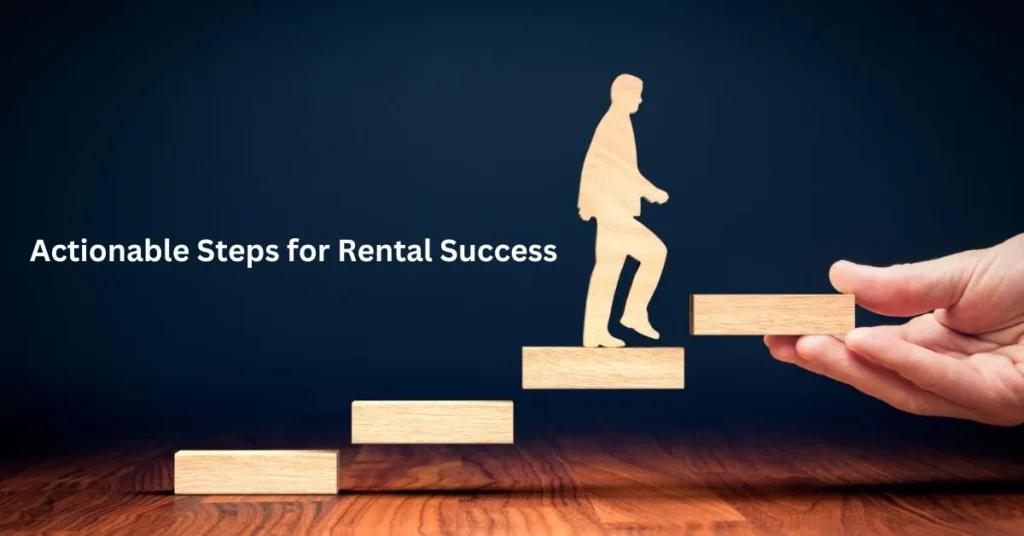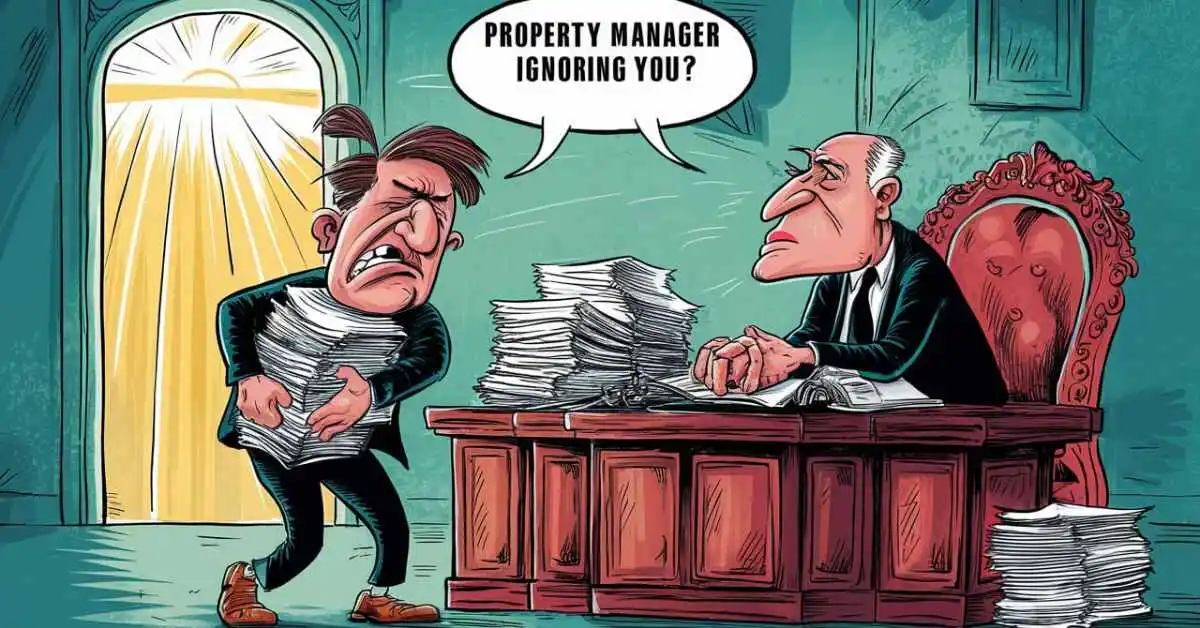When your property manager is unresponsive, it can be frustrating and stressful. Knowing what steps to take can help you address the issue effectively.
Start by documenting all your attempts to reach the property manager, including emails, calls, and texts. Record dates, times, and the content of each message. This record will be valuable if you need to escalate the situation.
If the property manager continues to ignore you, contact the management company or landlord directly. Share your concerns and the documentation of your communication attempts. Be clear and professional in your approach.
Key Traits of Top Property Management Companies
Top property management companies are known for their excellent communication. They respond promptly to tenants’ concerns and keep property owners informed. They also have a thorough understanding of local laws and regulations, ensuring compliance and avoiding legal issues.
Another key trait is strong organizational skills. These companies efficiently handle rent collection, maintenance, and tenant screening. They also offer transparent financial reporting, giving property owners a clear view of their investment performance.
Warning Signs That You Have a Bad Property Management Company
A key warning sign of a bad property management company is poor communication. If they don’t respond quickly to calls or emails, it’s a red flag. Good managers are prompt and clear in their communication.
Another sign is high tenant turnover. If tenants frequently leave, it might indicate poor property maintenance or unresolved issues. A good company keeps tenants happy and addresses concerns promptly.
Lack of transparency is also a concern. If the company doesn’t provide clear financial reports or there are unexplained fees, it’s a problem. Good management companies offer transparent and accurate reporting.
Crafting Success: Essential Actions for Property Owners
For success, property owners should maintain open communication with their property management team and set clear expectations. Regularly reviewing financial reports and staying updated on local laws are essential.

Proactive maintenance and fostering good tenant relationships also contribute to long-term success.
1. Try to evaluate credentials more extensively
When evaluating a professional, thoroughly check their credentials. Look for relevant licenses, certifications, and educational background. This ensures they have the necessary qualifications and expertise for the job.
Also, consider their experience in the field. Ask for references and reviews from previous clients. A solid track record and positive feedback are indicators of reliability and competence.
2. Initiate proactive ways to disseminate information
To efficiently disseminate information, use multiple channels like emails, newsletters, and social media. This guarantees that the message reaches a broader audience. Regular updates keep everyone informed and engaged.
Proactively sharing information about policies, events, or changes helps prevent misunderstandings. Create clear and concise content, and consider using visuals to make the facts greater handy. Consistent communication builds agree with and transparency.
3. File a case
Filing a case involves taking legal movement to resolve a dispute. It starts with collecting all vital documentation, such as contracts, communications, and evidence of the issue. Consulting with a attorney assist you to apprehend your legal alternatives and the best route of action.
Once you’re prepared, your lawyer will help you report a criticism in the ideal courtroom. This document outlines your claims and the comfort you are trying to find. After filing, the case proceeds thru the prison system, which may contain hearings, negotiations, or an ordeal.
Related Article: 10 Things to Do After You Get a Real Estate License
Empowering Tenants: Actionable Steps for Rental Success

Empowering tenants involves taking specific steps for rental success. First, understand your lease terms clearly. Pay rent on time to build trust with your landlord. Keep the property clean and report maintenance issues promptly.
Know your rights as a tenant to avoid conflicts. Communicate effectively with your landlord to resolve any problems quickly. Lastly, maintain a good relationship with your neighbors to create a pleasant living environment.
1. Start by sending a notice to the property manager
Send a notice to your property manager to address any issues. Keep it clear and concise.
- Clearly state the problem or request.
- Include your name and address.
- Mention the date.
- Specify any deadlines or timeframes.
- Be polite and professional.
- Keep a copy for your records.
2. Identify the situation and the frequency
Identify the Situation
Describe the problem clearly. State what is happening and how it affects you. Be specific about the details.
Identify the Frequency
Explain how often the issue occurs. Mention any patterns or recurring times. This helps the property manager understand the urgency.
3. Properly documenting all communication and record-keeping of ignored requests
Document All Communication
Keep a record of all your communications. Save emails and letters. Note down phone calls and in-person conversations.
Record Ignored Requests
Track any requests that go unanswered. Write down the dates and details. This helps build a case if further action is needed.
4. Escalate the issue
If your problem remains unresolved after initial attempts, it’s time to escalate the problem. Start by contacting better government within the assets control enterprise or reach out directly to the landlord. Clearly explain the situation, providing all relevant details and documentation to support your case.
Continuously follow up on your escalation to ensure your concerns are being addressed. Document each attempt to escalate, including dates and the people you contacted. Stay persistent and polite in your communication, emphasizing the urgency and impact of the unresolved issue.
5. Seek legal advice or file a complaint if the problem persists
- Consult a tenant rights organization or lawyer for guidance.
- Gather all documentation and evidence of ignored requests.
- File a formal complaint with your local housing authority.
- Consider taking legal action if the issue remains unresolved.
Know Your Rights: Understanding Your Legal Standing

It’s essential to completely understand your legal rights as a tenant. Start by researching local housing legal guidelines and regulations that observe in your vicinity. This knowledge will help you handle disputes extra efficiently and ensure you are aware of what protections you have got under the regulation.
Ensure to stay knowledgeable about the phrases of your hire and your tenant rights. Regularly review this information to advocate effectively for yourself in any disputes. Being well-informed empowers you to resolve problems with a bit of luck and guarantees you are not taken gain of.
Related Article: Is Real Estate a Good Career in 2024? The Ultimate Guide
Addressing Poor Property Management: Steps to Take Action
- Document Issues: Record all problems with the property, including dates and details.
- Notify the manager: send a written notice to the assets manager detailing the troubles.
- Follow Up: check in with the supervisor in case you don’t obtain a response.
- Escalate if necessary: contact higher authorities if the troubles stay unaddressed.
- Seek legal recommendation: consult with a tenant rights company or legal professional for further steering.
- Record a complaint: submit a proper criticism to your local housing authority with all applicable documentation.
Choosing the Perfect Property Management Partner
Choosing the perfect property management partner starts with thorough research. Look into different companies, comparing their services and customer reviews. Make sure they are licensed and have a strong track record of managing properties effectively.
Understand the fee structure and ask about any additional costs. Inquire about their management practices and how they handle maintenance and tenant issues. Good communication is crucial, so choose a company that is responsive and clear. Finally, review the contract carefully to ensure all terms are fair and transparent.
Frequently Asked Questions
What should I do if my property manager is unresponsive?
Document your attempts and escalate to the Management Company or landlord. Consider seeking legal advice if needed.
How can I choose the right property management company?
Research companies, check reviews, and ensure they are licensed and transparent about fees.
What are signs of a bad property management company?
Poor communication, high tenant turnover, and lack of financial transparency.
What steps should I take if I need to escalate a property management issue?
Contact higher authorities, provide documentation, and follow up regularly.
How can I protect my rights as a tenant?
Understand local laws, understand your rent, and talk certainly with your landlord.
Final Thoughts
When dealing with property management issues, clear communication and thorough documentation are essential. Address problems promptly and escalate if necessary to ensure your concerns are resolved effectively.
Choosing the proper assets control organisation and knowledge your tenant rights can prevent many problems. Live informed and proactive to make certain a positive rental experience and defend your interests.

Paul Mitchell, our website’s author, leverages 6 years of business expertise to provide insightful content. His wealth of experience enriches our platform, offering valuable insights for our readers.











